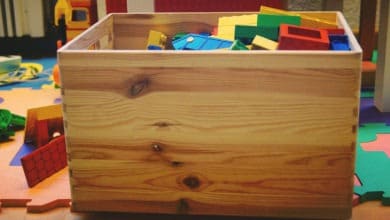Beginners Guide to Feminism
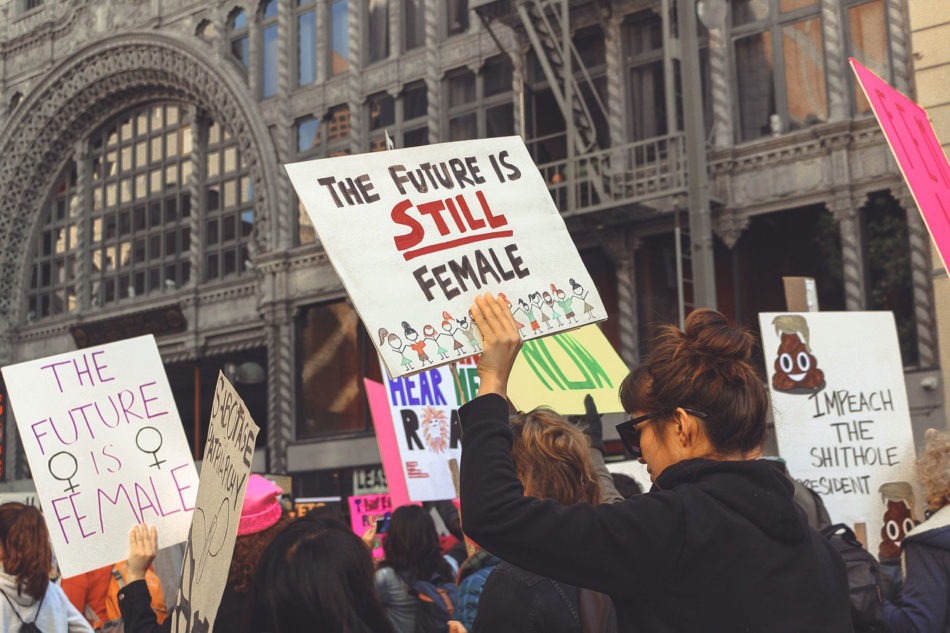
Step 1. Hate men.
Step 2. Burn Bra.
Step 3. Never shave your legs.
(Kidding!)
I didn’t always identify myself as a feminist, I didn’t identify myself as being anti-equality, but I didn’t think I was or ever would be a feminist. I’d been sold the idea that feminism is man hating, and even woman-hating in that I’d been led to believe that feminists were anti-all-things-that-might-be-defined-as-feminine. I thought feminists looked down their noses at women who wear make up, get married, have children and were stay at home mums.
I was wrong, but the great thing about being wrong is that it’s an opportunity to learn.
What does “Feminism” mean?
“The advocacy of women’s rights on the ground of the equality of the sexes.”
One of the big misconceptions I myself held about feminism was due to its name; because it’s FEMIN-ism, not EQUAL-ism or HUMAN-ism I wrongly assumed that feminism meant not just equality, but seeking privileges for women.
Feminism focuses on women because globally, and in Australia, women still do not have rights and opportunities equal to men across a broad range of issues. Despite beliefs to the contrary, feminism isn’t about tearing men down, but in a way, feminism does seek privilege for women – in that women should be equally privileged to men, and not that men should be equally disadvantaged to women.
What isn’t Feminism?
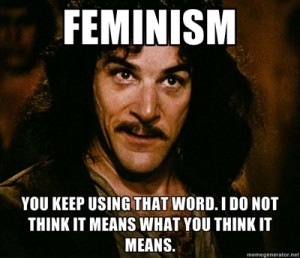 Feminism isn’t hating men. There are not enough words to explain how incorrect this is. Many feminists I know have male partners, who they love, they have sons, fathers, brothers and male friends, and even if they don’t, feminism is not about hating men.
Feminism isn’t hating men. There are not enough words to explain how incorrect this is. Many feminists I know have male partners, who they love, they have sons, fathers, brothers and male friends, and even if they don’t, feminism is not about hating men.
Although a person can identify themselves as a feminist who advocates for women’s equality while being a misandrist (someone who hates men or is prejudiced against men) misandry and feminism are not the same thing.
Is Feminism Still Relevant?
This is the next thing I struggled to understand initially with feminism-is feminism actually still relevant? I figured we (in Australia) can vote, access contraception, marry who we want, divorce when we want, own property, raise children independently, work in a ‘man’s job and so on – what more could we want?
Though there was a lot of things that I’d accepted as being “the way they are” without really thinking about it.
For example, I’d accepted that women are 4 times more likely to be victims of sexual violence than men, at a rate of 1 in 5 Australian women. I’d never considered that this is something women should even want to be different – of course women are more likely to be victims of sexual violence… because we’re women… it’s just is how it is.
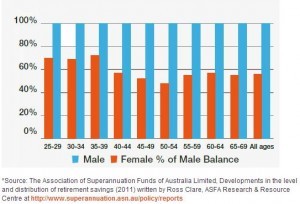 I’d accepted that because I’m a woman, over my lifetime I will likely earn much less than my male peers, after all, women have babies, so of course we should be disadvantaged financially for being mothers, in a way that men are not disadvantaged for being fathers. I accepted that it’s reasonable that at retirement age, that women’s superannuation is a little over half of men’s.
I’d accepted that because I’m a woman, over my lifetime I will likely earn much less than my male peers, after all, women have babies, so of course we should be disadvantaged financially for being mothers, in a way that men are not disadvantaged for being fathers. I accepted that it’s reasonable that at retirement age, that women’s superannuation is a little over half of men’s.
Also when comparing the earnings of men and women, in Australia, working full time, in 2013, women still were paid 17.1% less than men. One reason I’ve seen given for this many times is that woman apparently are less confident negotiating their rate of pay, women are more likely to accept being underpaid, whereas men are more likely to actively negotiate a raise.
If this is the case, then what are we teaching the women in Australia about what they are worth?
What about men?
Feminism both is and isn’t about men. Feminism benefits men, absolutely, without doubt. Breaking down sexism against women is good for men, because sexism against anyone hurts everyone.
When men are mocked as being incompetent with housework or child rearing, this stereotype negatively impacts both men and women. By setting up men to believe they cannot contribute positively to the running of housework, women are left to do the majority of unpaid labour.
If men are painted as being predatory animals, unable to control their most basic instincts, this both incredibly unfair and obviously very damaging to people of both sexes.
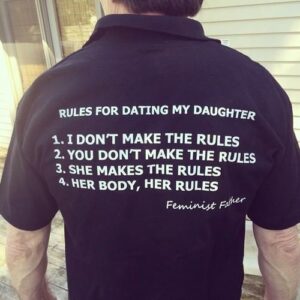 Believing in equality means feminists believe men are just as capable as women. Just as capable of self-control, just as capable of being nurturers and primary carers of children, just as capable of being sensitive to their own feelings and the feelings of others.
Believing in equality means feminists believe men are just as capable as women. Just as capable of self-control, just as capable of being nurturers and primary carers of children, just as capable of being sensitive to their own feelings and the feelings of others.
Feminists believe in men.
And many feminists ARE men. Feminism doesn’t exclude men, it just isn’t focused on them, because it feminism addresses how certain issues specifically impact women – and there needs to be that space to look at and address those issues.
Feminist Fatherhood have a really good, simple guide here: 10 Tips For Feminist Fathers.
Feminism and Raising Children
Children are adults-to-be, so all the gender bias and stereotyping we pour into them now, will come to life as they get older. If nothing else, be mindful of how you use language to talk about gender with your children, and with children in general.
There’s a lot of great information about how to rethink how we talk to children about gender, for example short videos like “#Like a Girl” or “”How We As A Society Are Failing Our Boys” or blog posts like “How to Talk to Little Girls”
Also, we need to challenge gender roles, for example this is a page from Big Ws most recent Toy Sale catalogue. This is BOYS TOYS:
Superheros and action figures! Important and brave people who save lives.
And this is GIRLS TOYS:
Raising babies, being princesses and cooking food.
This is not an isolated way that our future men and women are taught to think of themselves, this is just one very recent, very visual, example.
And you might say they’re just toys, how does classifying toys as boys toys or girls toys hurt anyone? How often are children teased by other children for playing with toys that adults have arbitrarily designated as being boy’s toys or girl’s toys? Why should little boys be teased for playing with dolls, or bullied for playing with My Little Pony.
Even my own son, at 4 years old, was teased by other 4 year olds, for sitting in his sisters pram -because it was pink. From that day on he has refused to eat or drink from a pink cup or plate. Where on earth are preschoolers getting the message that it’s okay to tease their peers for being “like a girl”?
Teaching children that certain toys, clothes and colours are for boys or girls only is unnecessary at best and devastating at worst.
What Can You Do About It?
Okay, NOW you can burn your bra and toss out your razor!
Still kidding (though, feel free to, it’s totally up to you.)
When I first tentatively dipped my toes into feminism (and I’m still barely paddling in the shallow end) I was overwhelmed with how big, diverse, and deeply entrenched the issues surrounding equality for women are, but you don’t have to try to fix everything today.
If you want to host a rally, petition your local member of parliament, get on TV, or run for government to make changes from the top down – do that.
Or, you can start small, and start local, very local, like your own home, family and friends. Talk about feminism, talk about the rights of women, talk about the need for equality, talk about how this impacts you personally and how it affects other people. In some ways the best, and sometimes hardest, thing you can do is just let people know that things can be different.
Keeping in mind this is only a brief summary of the issues surrounding equality and advocating women’s rights.
Below is a list of links to websites, pages and videos relating to feminism and gender equality:
Huffington Post – “How to Talk to Little Girls” – Blog Post
Always – “#Like a Girl” – Video
Alternet.org “How We As A Society Are Failing Our Boys” – Video
Youtube – What Guys Look For In A Girl – Video
Workplace Gender Equality Agency – Gender Pay Gap Statistics – PDF
Feminist Fatherhood – Website
Women and Super – Website
Unwrinkled – Problems with modesty doctrine – Blog Post
*TRIGGER WARNING* The below links relate to rape culture, sex and sexual assault. Please be mindful of this when reading.
Handbag Mafia – Yes, All Women – Blog Post
Huffington Post – Oppressed Majority – Video
Jezebel – How to make a rape joke – Blog Post
Medium – A Gentlemans Guide To Rape Culture – Blog Post
The Guardian – What Makes a Slut? – Article
ABC – The Danger Of The Monster Myth – Article by Tom Meagher
Centres Against Sexual Assault – Fact Sheet: Statistics about sexual assault -PDF
Australian Institute of Family Studies – Australian Centre for the Study of Sexual Assault – Facts and Figures
